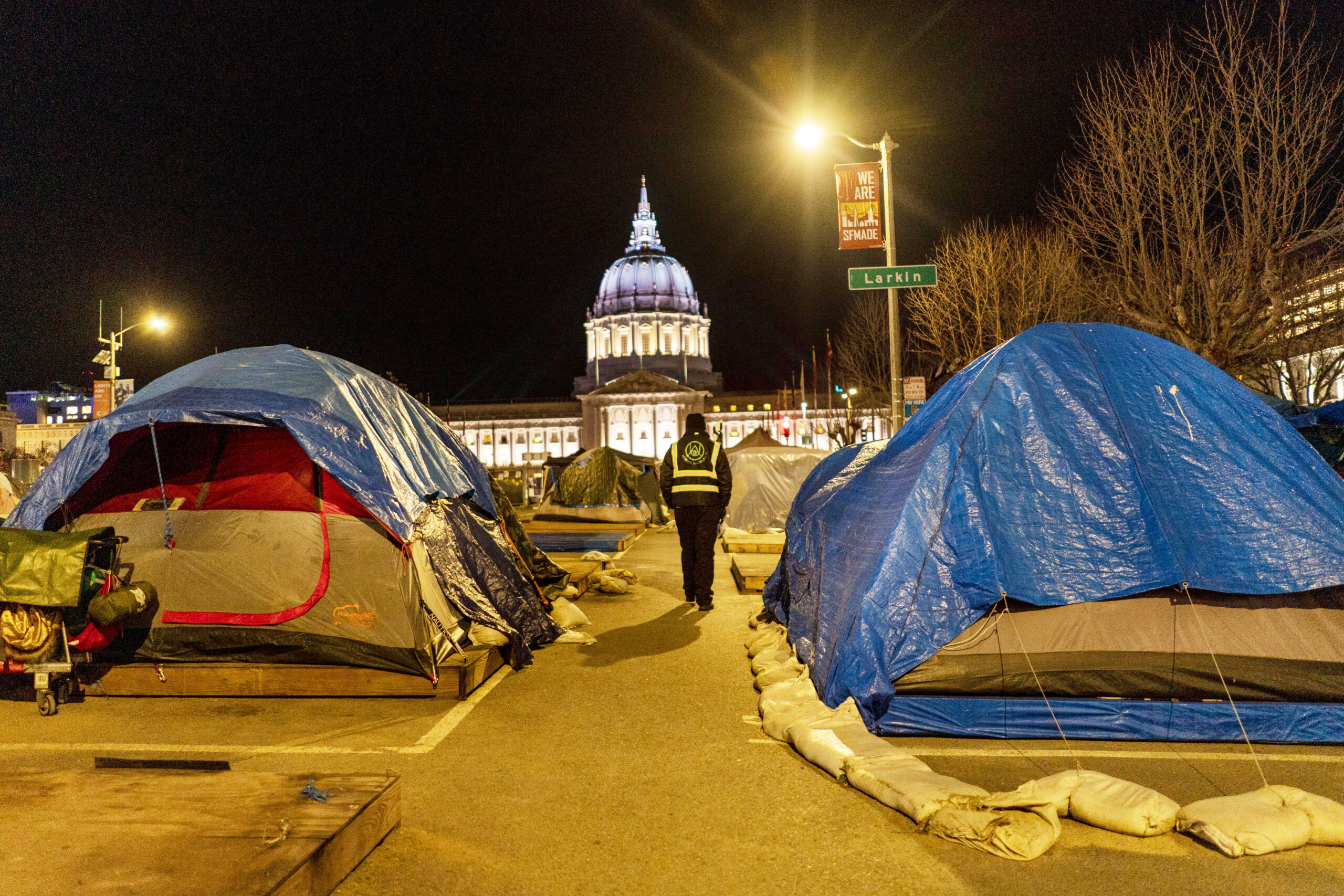Before taking its first breath, a baby was found dead in the port-a-potty of a San Francisco city-funded tent site last year. The episode, which the city acknowledged publicly last week, depicts a grim reality for people living on the streets who become pregnant.
The stillborn child, known by the Chief Medical Examiner’s Office as “Baby Boy Williams,” was one of more than a dozen children born to parents living on the city’s streets every year, according to Dominika Seidman, a UCSF obstetrician who often works with unhoused people.
Some shelters, such as the “Safe Sleep Site” where Baby Boy Williams was found last year, may not allow pregnant people to stay at their facilities, potentially discouraging would-be parents from coming forward about their pregnancies.
Urban Alchemy, which was running the tent site near City Hall, said in a statement that staff was unaware of the pregnancy because neither the woman nor her partner revealed her condition at intake.
“I think a lot of those rules were made to support pregnant people, but ironically, it often results in being a barrier to their care,” Seidman said. “We still have tragic outcomes like this because there’s a really long history of discrimination and mistreatment of pregnant people affected by homelessness.”
Seidman said homeless people may not even know that they’re pregnant due to the stress of living on the streets. Others may not want to come forward out of fear that their child could be taken from them.
The path forward for unhoused expectant parents has grown narrower since the city’s sole walk-in family shelter, called Oasis Inn, closed in December.
After the closure of Oasis Inn, a pregnant woman named Judith Matute and her husband, Nelson, initially resorted to living in their car, where they had lived during her prior pregnancy two years earlier.
In February, the city gave the Matute family a one-year transitional housing voucher to live in a hotel in Concord, a suburb around 40 minutes outside of San Francisco. But the transition to an unfamiliar town has been tough for Judith, who said that she was advised by a doctor to avoid high-stress situations because of multiple health conditions that are putting her pregnancy at risk.
The Matutes said that their other three children have also struggled to adapt to the new environment after living in San Francisco for eight years.
“We keep having to take our kids out of school,” Nelson said. “You can tell they’re not doing well.”
In a statement, the Department of Homelessness and Supportive Housing pointed to a newly opened emergency shelter for pregnant people called the Hamilton Family Shelter, among other resources intended for pregnant people.
The department said it can serve up to 404 people within its network of family shelters and transitional housing, and works to connect pregnant people who are either encountered on the street or who visit an access point with a variety of lodging options.
But Seidman said that many of her clients would rather sleep on the streets than be forced to live in a congregate setting while they’re pregnant.
“Just last week, I saw a patient who was staying at a Safe Sleep Site who is pregnant and who declined Hamilton because it’s [a shared living space],” Seidman said. “Hamilton is really not an adequate replacement.”
The homelessness department previously told The Standard that the city is considering buying the Oasis Inn shelter, but that it needed six months to determine whether the building is in good condition.
In the meantime, in the midst of a dangerous pregnancy, the Matute family is adjusting to their new life in Concord, though they know that it’s only temporary.
“The home we have now is like a piece of candy,” Nelson said. “When the candy runs out, what are we supposed to do?”
